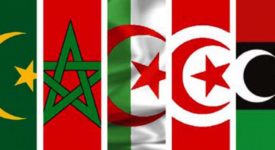Does Europe still have the desired impact, as a soft or smart power, considering the continent is still suffering from the continuing economic crisis? The state of the Union, its current global influence and other related issues were discussed during a roundtable debate organized by Friends of Europe, a Brussels-based think-tank. While the EU has been criticized in the past for its weak response to the revolutions sweeping the Arab world, European External Action Service Secretary-General Pierre Vimont defended the EU’s achievements by saying that “each situation has to be looked at on its own, and in each case, we have tried to do whatever we can.” Vimont also said that “we are trying to be as active as we can” and, despite lacking a power broker capability, Europe should be proud of its diplomatic achievements in response to the Arab Spring.
The debate on the Europe’s security framework and global power is likely to intensify before the EU summit in December when EU heads of state and government will meet in Brussels to discuss security and defense policy. Reflecting on the criticism of the EU’s low key response to the dramatic developments in the MENA region over the past 3 years, the EEAS Secretary General said: “It is frustrating from time to time when people argue that Europe is absent in Egypt. Egypt is the perfect example where Europe is in fact clearly involved. But we are involved elsewhere too. Take Tunisia, for example, where we have been discussing the present political deadlock with every stakeholder.”
As to Syria, Vimont asserted that Europe was doing all it could to be involved to find a long term solution to the still unfolding conflict there: “The EU is playing its part […] and has responded to each of the UN’s calls for aid. I’m not saying that our actions are going to solve the crisis – that is certainly not the case.” The EEAS Secretary-General then added that “the US put pressure on Syria [which] was a good thing. Europe wasn’t there for this initiative but we’ve been as helpful as possible ever since.”
December 2013 will mark the third anniversary of the European External Action Service, the Union’s foreign policy apparatus, which was officially launched on 1 December 2010. At the end of 2014, Catherine Ashton, the EU High Representative for Foreign and Security Policy, will also step down.
Article Categories:
EUROPE'S NEIGHBORHOOD






